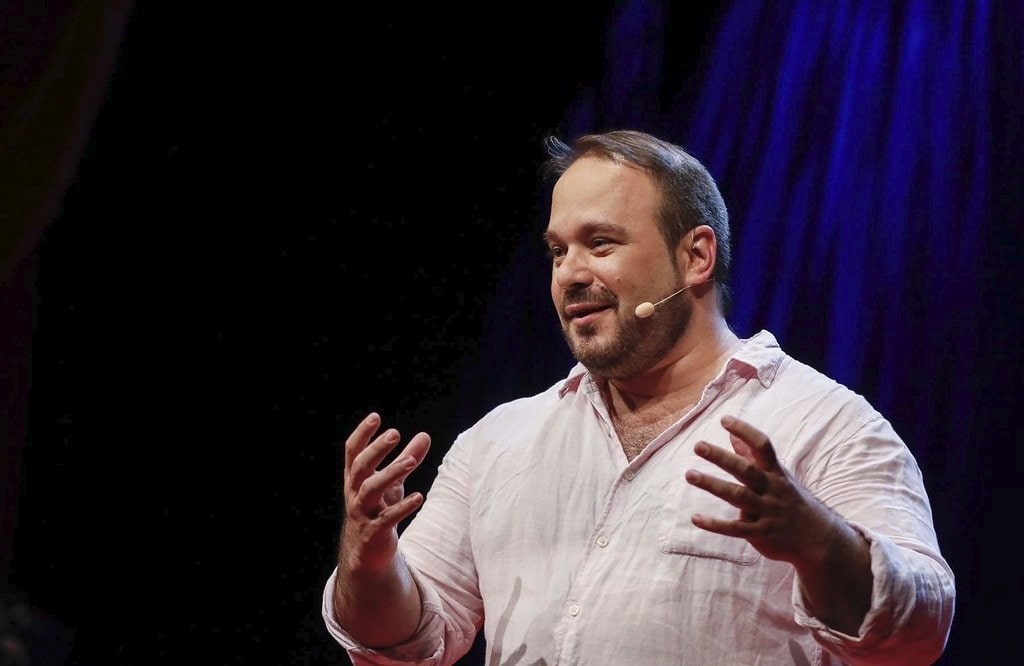The decentralized, peer-to-peer nature of digital currencies has long made them an attractive proposition for people in economically-challenged countries. This isn’t mere speculation. From Venezuela to Turkey, India, and Iran, citizens have flocked to cryptocurrencies as their national currencies have proven volatile in the face of economic turmoil.Now, the co-founder and CEO of IOV Labs, Diego Gutiérrez Zaldívar, has penned the possibility that they could help the Latin American accelerate its recovery from the fallout of the coronavirus pandemic. He’s long been a champion of Bitcoin and other cryptocurrencies in the region, even before his firm built the RSK network and RIF infrastructure layer as a smart contract solution for Bitcoin.RSK’s CEO Diego Gutiérrez ZaldívarAs a native
Topics:
Danish Yasin considers the following as important: Projects
This could be interesting, too:
Felix Mollen writes Dogecoin Price Outlook: Should You Keep DOGE and What About BTC Bull Token?
Felix Mollen writes Best Wallet Adds Bitcoin Support in Multi-Chain Upgrade – Could This Be the Future of Crypto Storage?
Felix Mollen writes Pi Network Soars 42% Past as Best Wallet Token Gains Momentum
Felix Mollen writes BERA Price Pumps 13% After Latest Upgrade But Could BTC Bull Token Soar Higher?
The decentralized, peer-to-peer nature of digital currencies has long made them an attractive proposition for people in economically-challenged countries. This isn’t mere speculation. From Venezuela to Turkey, India, and Iran, citizens have flocked to cryptocurrencies as their national currencies have proven volatile in the face of economic turmoil.
Now, the co-founder and CEO of IOV Labs, Diego Gutiérrez Zaldívar, has penned the possibility that they could help the Latin American accelerate its recovery from the fallout of the coronavirus pandemic. He’s long been a champion of Bitcoin and other cryptocurrencies in the region, even before his firm built the RSK network and RIF infrastructure layer as a smart contract solution for Bitcoin.

As a native Argentinian, he’s witnessed the kind of draconian measures that governments will take to attempt to strong-arm citizens into using a flailing national currency.
In fact, this was how he first came to Bitcoin. As he writes in the CoinMarketCap blog:
“[In 2012], there were strict controls on the transfer of capital, imposed by the government. These controls made it all but impossible to transfer money in or out of Argentina. A friend living in Silicon Valley told me to open a BTC account and transferred some BTC to me. [It] opened my eyes to what an open financial system could look like. I decided to devote my life to helping develop and spread the word about Bitcoin.”
His firm, IOV Labs, is doing its part to raise the profile of blockchain and cryptocurrency with various enterprise partnerships announced this year. Argentina’s largest gas provider, Gasnor, is using RSKs enterprise platform to track gas distribution. Elsewhere, the Central Bank of Argentina is heading up a banking consortium, which is piloting the same platform to track payments.
Promoting Crypto to the People
Despite the success of RSK in the enterprise space, the CoinMarketCap post makes it clear that Gutiérrez Zaldívar is also firmly focused on promoting the benefits of cryptocurrency to individuals. He points out that Latin America already has some of the most crypto-savvy populations in the world, in part because of the already-unstable economic situation in some countries in the region.
Along with highlighting the way that stablecoins make the stability of foreign currencies more accessible to Latin American citizens, Gutiérrez Zalvídar also states his belief that decentralized finance offers huge potential to the unbanked.
He explains how DeFi lending platforms open up new avenues of credit that could help stimulate entrepreneurship. He also believes that developments in interoperability will create further opportunities:
“It seems reasonable to expect that within a few years, decentralized finance applications running on Bitcoin and other platforms will run together seamlessly, allowing a lender on one platform to loan funds to a borrower on another.”
As Gutiérrez Zalvídar acknowledges, “things seem bleak right now,” and he’s far from wrong. However, he offers a unique perspective on how cryptocurrencies could be used to create wealth in a region that sorely needs it, now and in the future.
